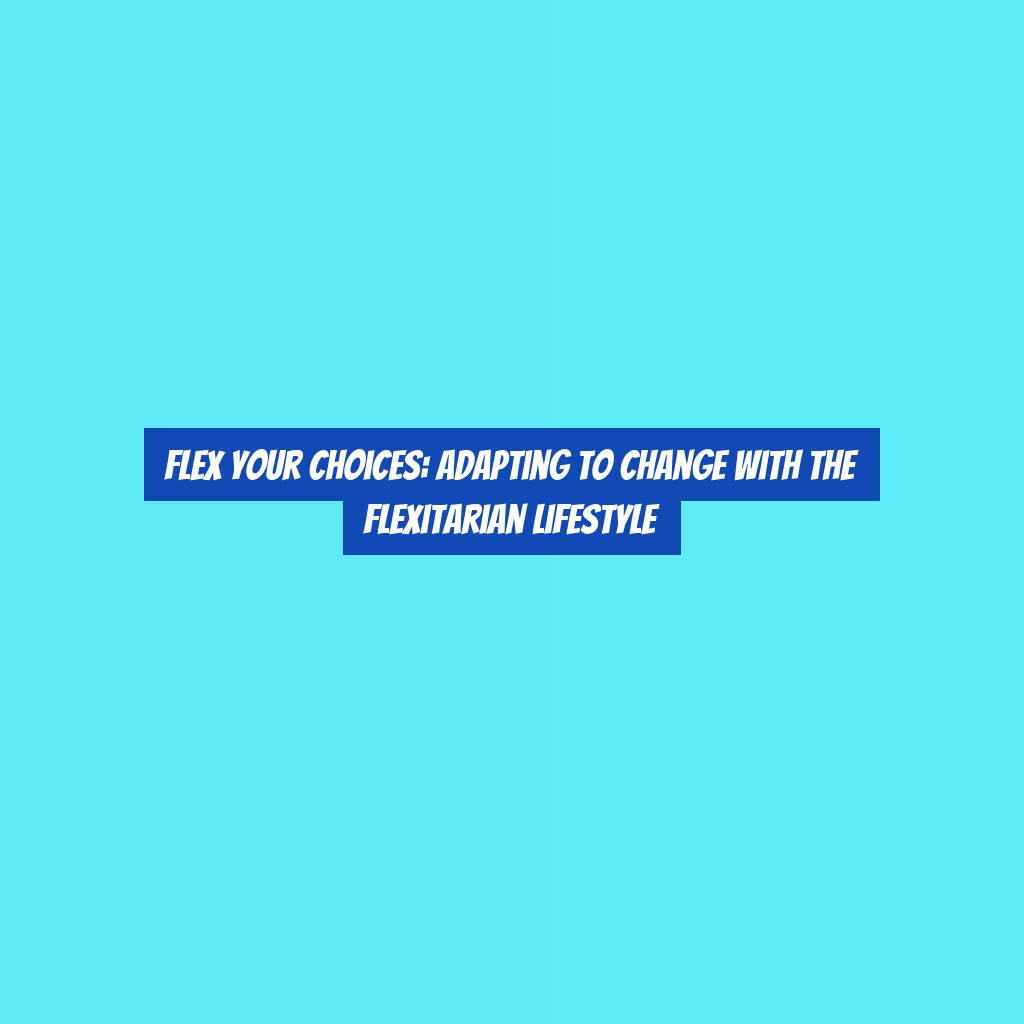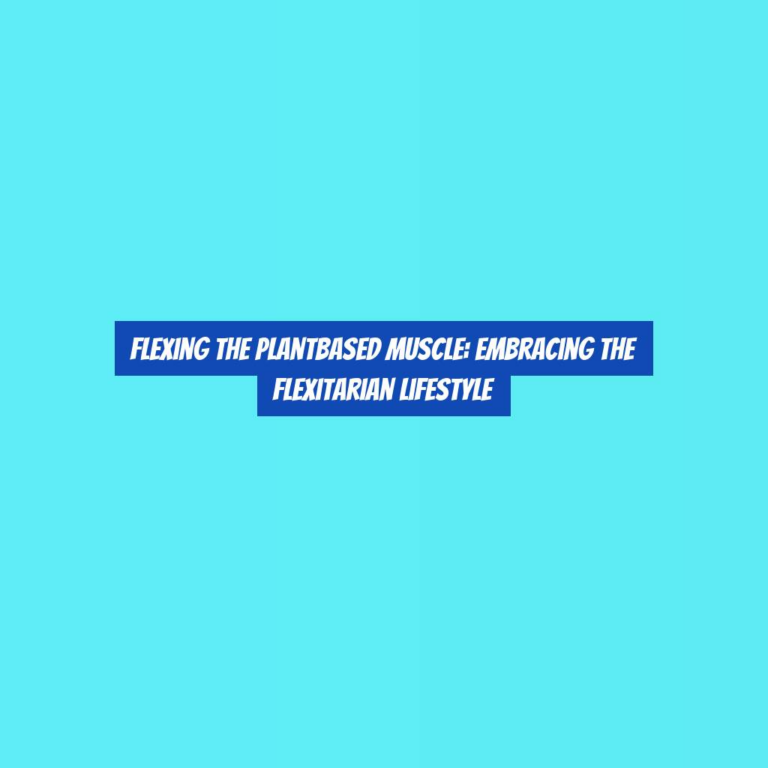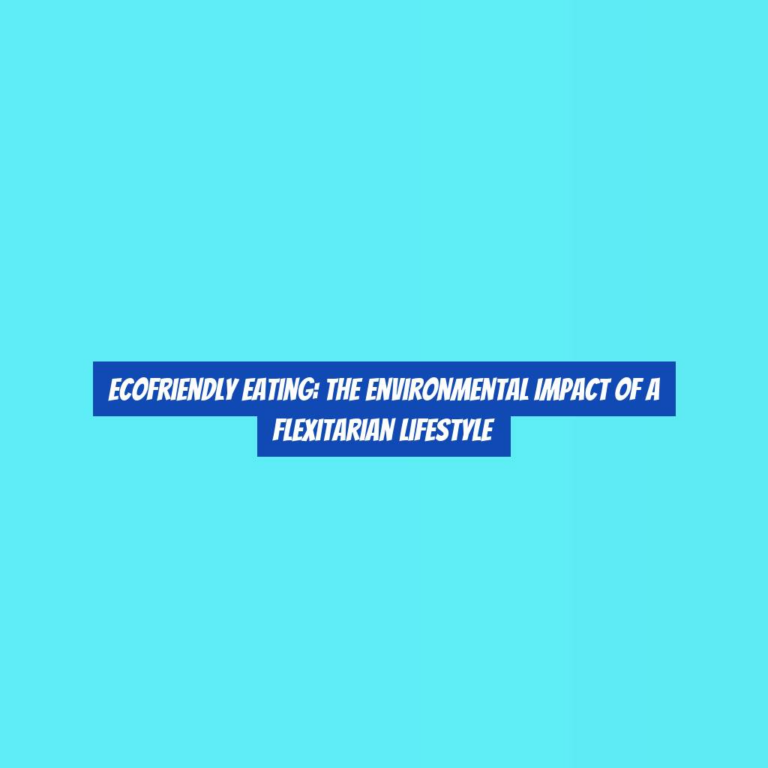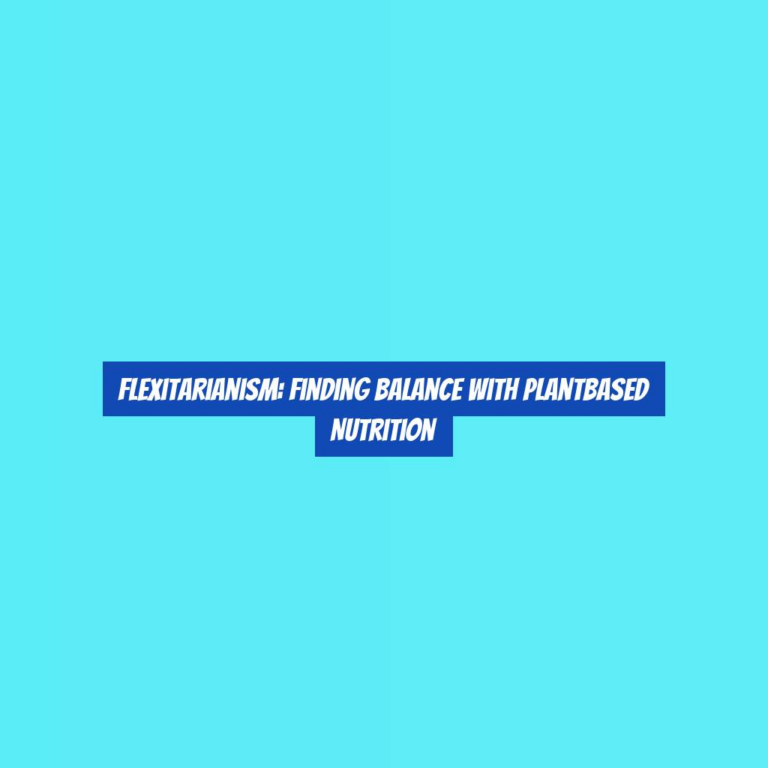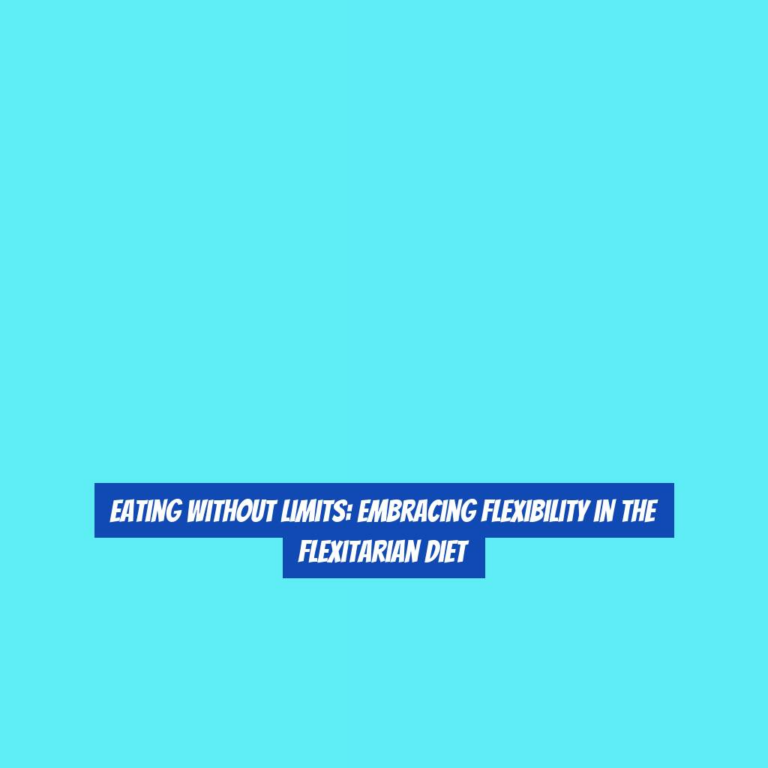Flex Your Choices: Adapting to Change with the Flexitarian Lifestyle
Are you tired of feeling restricted by traditional diets but still want to make healthier choices?
The flexitarian lifestyle might just be the solution youG??ve been searching for. By incorporating more plant-based foods into your diet while still enjoying the occasional meat-based meal, you can find a balance that works for your individual needs.
With its potential health benefits and positive environmental impact, flexitarianism offers a way to adapt to change without sacrificing your favorite foods.
So, how can you make the shift towards a more flexible approach to eating?
The Flexitarian Diet: A Balanced Approach
When adopting a flexitarian diet, you can achieve a balanced approach by incorporating a wide variety of plant-based foods alongside occasional servings of meat and other animal products. This balanced approach allows you to enjoy the health benefits of a plant-focused diet while still satisfying your cravings for animal-derived proteins.
By prioritizing fruits, vegetables, whole grains, legumes, and nuts, you can ensure that your body receives essential nutrients, fiber, and antioxidants. These plant-based foods form the foundation of your meals, providing you with energy and promoting overall well-being.
Incorporating occasional servings of meat, poultry, fish, dairy, and eggs into your diet allows you to meet your protein requirements and enjoy the flavors and textures that animal products offer. When selecting these items, opt for lean cuts of meat, sustainably sourced seafood, and organic dairy to support both your health and the environment.
Health Benefits of Flexitarianism
To fully appreciate the health benefits of flexitarianism, consider how incorporating a wide variety of plant-based foods alongside occasional servings of meat and other animal products can positively impact your overall well-being. By following a flexitarian diet, you can experience numerous health benefits, including:
Improved Heart Health:
Consuming a predominantly plant-based diet can lead to lower cholesterol levels and reduced risk of heart disease, thanks to the abundance of fiber, vitamins, and antioxidants found in fruits, vegetables, and whole grains.
Incorporating lean sources of protein such as fish and poultry in moderation can further support heart health by providing essential nutrients without the saturated fats commonly found in red meat.
Weight Management:
The high fiber and water content of plant-based foods can help you feel fuller for longer periods, making it easier to maintain a healthy weight.
Reducing the intake of high-calorie, processed meats and increasing the consumption of nutrient-dense plant foods can contribute to effective weight management and overall well-being.
Environmental Impact of Flexitarian Choices
By making flexitarian choices, you actively contribute to reducing the environmental impact of your dietary habits. Incorporating more plant-based meals into your diet means consuming fewer resources, such as water and land, compared to a diet heavy in animal products. The production of meat and dairy products has a significant environmental footprint, including greenhouse gas emissions, deforestation, and water pollution. By choosing to eat more plant-based meals and less meat, you can help lower the demand for these resource-intensive products.
Additionally, the flexitarian lifestyle encourages the consumption of locally sourced and seasonal produce. This means that your food travels shorter distances to reach your plate, reducing the carbon emissions associated with transportation. Furthermore, focusing on whole foods and reducing the consumption of highly processed foods can lead to less packaging waste, contributing to a more sustainable environment.
Tips for Transitioning to a Flexitarian Lifestyle
Transitioning to a flexitarian lifestyle requires mindful meal planning and a gradual shift towards plant-based eating habits. To help you make the transition smoothly, consider the following tips:
Start Slow:
Begin by incorporating one or two plant-based meals into your weekly menu. This gradual approach allows your taste buds and digestive system to adapt to the change without feeling overwhelmed.
Experiment with New Recipes:
Explore different plant-based recipes to keep your meals exciting and enjoyable. Trying new dishes can help you discover delicious alternatives to your favorite meat-based meals.
Flexitarian Recipes for Every Occasion
Shifting towards a flexitarian lifestyle will be easier when you start incorporating diverse and flavorful plant-based recipes into your meals for every occasion. Whether itG??s a family gathering, a casual dinner, or a special celebration, there are delicious flexitarian recipes to suit every event.
For a cozy night in, try a hearty lentil and vegetable stew or a flavorful chickpea curry. Hosting a summer barbecue? Grilled portobello mushrooms, veggie kebabs, and black bean burgers are sure to impress even the most dedicated meat lovers.
When it comes to holiday feasts, consider a savory stuffed butternut squash or a mouthwatering mushroom Wellington as the centerpiece. For a quick and satisfying weekday lunch, whip up a vibrant kale and quinoa salad or a tasty avocado and black bean wrap.
The key to embracing the flexitarian lifestyle is to keep your meals exciting and varied, so donG??t be afraid to experiment with new ingredients and flavors. With these flexible and delectable recipes, youG??ll find that choosing plant-based options for any occasion becomes a delightful and fulfilling experience.
Conclusion
In conclusion, by adopting a flexitarian lifestyle, you can experience a balanced approach to eating that offers numerous health benefits and reduces your environmental impact.
With a focus on incorporating more plant-based foods into your diet while still enjoying the occasional meat dish, you can make a positive impact on your health and the planet.
So, flex your choices and embrace the flexibility of the flexitarian lifestyle for a healthier, more sustainable future.
